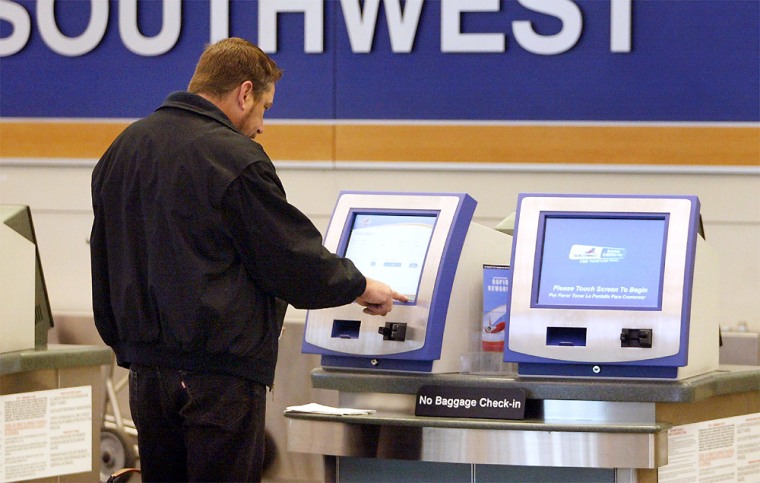The world's airlines agreed on Monday to cost-cutting measures such as full electronic ticketing by 2007 as the industry faces up to $3 billion in losses this year due to soaring fuel prices.
The move was agreed by 700 executives of airlines gathered in Singapore for the annual International Air Transport Association (IATA) and the World Air Transport Summit.
"In 2003, the industry survived the four horsemen of the apocalypse -- SARS, conflict in Iraq, terrorism and the economy. Now, a fifth horseman -- the price of oil -- could add up to $1 billion per month to our costs and deny us profitability yet again," IATA Director-General Giovanni Bisignani said.
Bisignani said if fuel averaged $36 a barrel this year the sector could expect $3 billion in losses, but a recovery to $33 dollars a barrel would allow it to break even.
Airlines have racked up more than $30 billion in losses in the past three years due to the impact of the September 11, 2001 attacks in the United States, the deadly Severe Acute Respiratory Syndrome (SARS) and the Iraq war.
With global passenger traffic in the January to March quarter about 6.5 percent above the levels of 2001, the industry was expected to post combined profits of $3 billion in 2004. But it now faces another year in the red due to soaring oil prices.
U.S. oil prices hit a 21-year high of $42.45 a barrel last week, although they have since fallen to around $38.
Jet fuel is the second-biggest cost item for airlines, accounting for about 12 percent to 20 percent of total operating expenses.
Aside from eliminating paper tickets, Bisignani said the airlines agreed to work on an industry standard for check-in terminals worldwide, and he called on governments to shoulder more of the industry's $5 billion annual cost of securing the skies.
"The figure for security is roughly $5 billion," he said. "Now the insurance market has returned to normal levels, but the security costs are increasing. So we really think this issue is an issue that has to be addressed by governments."
The airlines also plan to replace magnetic stripes with bar codes on boarding passes so they can be printed by passengers at home to cut costs and check-in times.
The industry also agreed to use radio frequency technology, a baggage-tracking system, to replace bar-coded baggage tags.
The Geneva-based trade association represents 275 airlines comprising 98 percent of international scheduled air traffic.
Bisignani, a former chief of Alitalia, called on governments to simplify the regulatory framework set by the 60-year-old Chicago Convention that requires international air travel be governed by bilateral Air Services Agreements.
"We don't need rules on seat pitch. We need vision and we need policy," Bisignani said.
Singapore Airlines Ltd Chief Executive Chew Choon Seng said liberalization of air service regulations was necessary, but countries should move forward at different speeds.
"We should not be rooted to a framework that governs the industry that was formulated 60 years ago. It's out of date. It will take time to put in place necessary reforms but those who are ready should be in a position to move forward," Chew said.
However, Philippine Airlines Ltd (PAL) objected, saying only the bigger airlines would benefit from liberalization.
"Many countries like the Philippines with huge outbound traffic would not be exactly happy with the situation since we (PAL) may lose our originating traffic to bigger airlines," PAL chief Avelino Zapanta told the IATA meeting.
